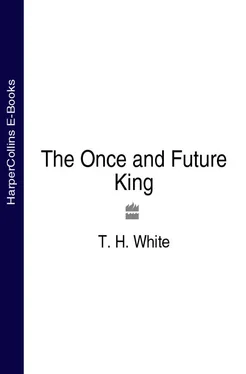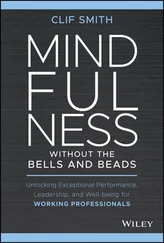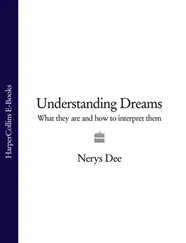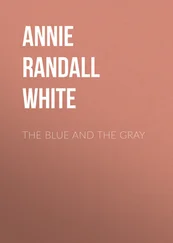Later in the afternoon a scouting ant wandered across the rush bridge which Merlyn had commanded him to make. It was an ant of exactly the same species, but it came from the other nest. It was met by one of the scavenging ants and murdered.
The broadcasts changed after this news had been reported – or rather, they changed as soon as it had been discovered by spies that the other nest had a good store of seeds.
Mammy – mammy – mammy gave place to Antland, Antland Over All , and the stream of orders were discontinued in favour of lectures about war, patriotism or the economic situation. The fruity voice said that their beloved country was being encircled by a horde of filthy Other-nesters – at which the wireless chorus sang:
When other blood spurts from the knife ,
Then everything is fine .
It also explained that Ant the Father had ordained in his wisdom that Othernest pismires should always be the slaves of Thisnest ones. Their beloved country had only one feeding tray at present – a disgraceful state of affairs which would have to be remedied if the dear race were not to perish. A third statement was that the national property of Thisnest was being threatened. Their boundaries were to be violated, their domestic animals, the beetles, were to be kidnapped, and their communal stomach would be starved. The Wart listened to two of these broadcasts carefully, so that he would be able to remember them afterwards.
The first one was arranged as follows:
A. We are so numerous that we are starving.
B. Therefore we must encourage still larger families so as to become yet more numerous and starving.
C. When we are so numerous and starving as all that, obviously we shall have a right to take other people’s stores of seed. Besides, we shall by then have a numerous and starving army.
It was only after this logical train of thought had been put into practice, and the output of the nurseries trebled – both nests meanwhile getting ample mash for all their needs from Merlyn – for it has to be admitted that starving nations never seem to be quite so starving that they cannot afford to have far more expensive armaments than anybody else – it was only then that the second type of lecture was begun.
This is how the second kind went:
A. We are more numerous than they are, therefore we have a right to their mash.
B. They are more numerous than we are, therefore they are wickedly trying to steal our mash.
C. We are a mighty race and have a natural right to subjugate their puny one.
D. They are a mighty race and are unnaturally trying to subjugate our inoffensive one.
E. We must attack them in self-defence.
F. They are attacking us by defending themselves.
G. If we do not attack them today, they will attack us tomorrow.
H. In any case we are not attacking them at all. We are offering them incalculable benefits.
After the second kind of address, the religious services began. These dated – the Wart discovered later – from a fabulous past so ancient that one could scarcely find a date for it – a past in which the emmets had not yet settled down to communism. They came from a time when ants were still like men, and very impressive some of the services were.
A psalm at one of them – beginning, if we allow for the difference of language, with the well-known words, ‘The earth is the Sword’s and all that therein is, the compass of the bomber and they that bomb therefrom’ – ended with the terrific conclusion: ‘Blow up your heads, O ye Gates, and be ye blown up, ye Everlasting Doors, that the King of Glory may come in. Who is the King of Glory? Even the Lord of Ghosts, He is the King of Glory.’
A strange feature was that the ordinary ants were not excited by the songs, nor interested by the lectures. They accepted them as matters of course. They were rituals to them, like the Mammy songs or the conversations about their Beloved Leader. They did not look at these things as good or bad, exciting, rational or terrible. They did not look at them at all, but accepted them as Done.
The time for the war came soon enough. The preparations were in order, the soldiers were drilled to the last ounce, the walls of the nest had patriotic slogans written on them, such as ‘ Stings or Mash? ’ or ‘ I Vow to Thee, my Smell ,’ and the Wart was past hoping. The repeating voices in his head, which he could not shut off – the lack of privacy, under which others ate from his stomach while the others again sang in his brain – the dreary blank which replaced feeling – the dearth of all but two values – the total monotony more than the wickedness: these had begun to kill the joy of life which belonged to his boyhood.
The horrible armies were on the point of joining battle, to dispute the imaginary boundary between their glass trays, when Merlyn came to his rescue. He magicked the sickened explorer of animals back to bed, and glad enough he was to be there.
In the autumn everybody was preparing for the winter. At night they spent the time rescuing Daddy-long-legs from their candles and rushlights. In the daytime the cows were turned into the high stubble and weeds which had been left by the harvest sickles. The pigs were driven into the purlieus of the forest, where boys beat the trees to supply them with acorns. Everybody was at a different job. From the granary there proceeded an invariable thumping of flails; in the strip fields the slow and enormously heavy wooden ploughs sailed up and down for the rye and the wheat, while the sowers swung rhythmically along, with their hoffers round their necks, casting right hand for left foot and vice versa. Foraging parties came lumbering in with their spike-wheeled carts full of bracken, remarking wisely that they must:
Get whome with ee breakes ere all summer be gone
For tethered up cattle to sit down upon ,
while others dragged in timber for the castle fires. The forest rang in the sharp air with the sound of beetle and wedge.
Everybody was happy. The Saxons were slaves to their Norman masters if you chose to look at it in one way – but, if you chose to look at it in another, they were the same farm labourers who get along on too few shillings a week today. Only neither the villein nor the farm labourer starved, when the master was a man like Sir Ector. It has never been an economic proposition for an owner of cattle to starve his cows, so why should an owner of slaves starve them? The truth is that even nowadays the farm labourer accepts so little money because he does not have to throw his soul in with the bargain – as he would have to do in a town – and the same freedom of spirit has obtained in the country since the earliest times. The villeins were labourers. They lived in the same one-roomed hut with their families, few chickens, litter of pigs, or with a cow possibly called Crumbocke – most dreadful and insanitary! But they liked it. They were healthy, free of an air with no factory smoke in it, and, which was most of all to them, their heart’s interest was bound up with their skill in labour. They knew that Sir Ector was proud of them. They were more valuable to him than his cattle even, and, as he valued his cattle more than anything else except his children, this was saying a good deal. He walked and worked among his villagers, thought of their welfare, and could tell the good workman from the bad. He was the eternal farmer, in fact – one of those people who seem to be employing labour at so many shillings a week, but who were actually paying half as much again in voluntary overtime, providing a cottage free, and possibly making an extra present of milk and eggs and home-brewed beer into the bargain.
In other parts of Gramarye, of course, there did exist wicked and despotic masters – feudal gangsters whom it was to be King Arthur’s destiny to chasten – but the evil was in the bad people who abused it, not in the feudal system.
Читать дальше












